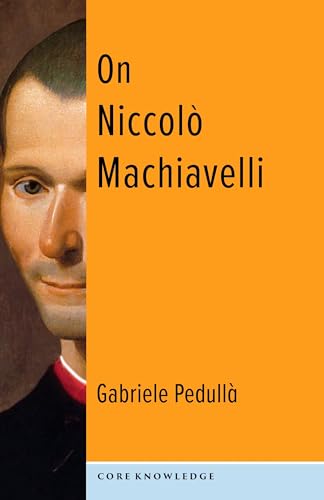
The figure of Niccolò Machiavelli is often synonymous with cunning and political manipulation, a perception so entrenched that there’s even a term in the dictionary named after him: ‘Machiavellian’. When someone is ‘Machiavellian’, they’re sneaky, cunning, and lacking a moral code. But was Machiavelli truly the personification of shrewd evil as its detractors set him out to be?
Far from it.
There’s a great deal of misunderstanding surrounding both Machiavelli’s work and him, as a person. Gabriele Pedulla a professor of Italian Literature and Comparative Literature at the University of Roma Tre, aims to rectify these misconceptions with his new book, ‘On Niccolò Machiavelli: The Bonds of Politics’.
“No great man has been so misunderstood,” Pedulla mentions in the book, and his compelling writing may convince the naysayers who still think otherwise.
Pedulla’s book discusses Machiavelli’s most important works, ‘The Prince’ and ‘Discourses on Livy’, placing them in their historical context. These texts are often viewed as foundational in political science, offering contrasting yet complementary views on governance, power, and statecraft.
Pedulla begins by examining “The Prince”, a work often misunderstood in its intentions and messages. “The Prince,” written in 1513 but published posthumously in 1532, is dedicated to Lorenzo de Medici, the de facto ruler of Florence. As Pedulla explains, Machiavelli had fallen out of grace with the powerful de Medici family, and it was customary in Renaissance times for a great artist or author to dedicate works to powerful patrons. Such dedications were known as speculum principis, or “mirror of princes”.
But unlike other idealistic treatises that enshrined political thought with religious virtues, The Prince took the opposite turn, focusing on the pragmatic measures and qualities a ruler must possess for effective governance.
The Prince is often summarized as the personification of “the ends justify the means”. This quote, by the way, is wrongly attributed to Machiavelli. He never said that — nor is The Prince‘s philosophy truly about attaining and maintaining power at all costs, which is a gross oversimplification.
Machiavelli’s greatest transgression is his assertions that Christian virtues, while noble, were impractical in the ruthless realm of politics. This view, understandably, earned him infamy.
- Pedullà, Gabriele (Author)
- English (Publication Language)
- 264 Pages – 10/17/2023 (Publication Date) – Columbia University Press (Publisher)
While “The Price” focuses on princely qualities and “realpolitik”, his subsequent book “Discourses on Livy” offers a comprehensive analysis of republican governance, using ancient Rome as a model. In this work, Machiavelli praises the republican system, highlighting its advantages over monarchical rule. He views social conflicts as a driving force for creating laws that balance societal interests, thus promoting liberty. Additionally, Machiavelli places a strong emphasis on military strategy and civic militarism, advocating for a strong, citizen-based military as opposed to reliance on mercenaries, as was the custom in Rennaissance Italy and elsewhere on the old continent.
Pedulla emphasizes that among the ideas in The Price and Discourses on Livy, one of the most consequential is the notion that it is easier to build an ordered society on selfish interests — which are rational and therefore predictable — rather than on noble passions. Religion is almost always reduced to a political tool, an anti-dogmatic approach that understandably made him a target for infamy, but also worked in his favor in some way precisely because his philosophy was so radical.
Machiavelli’s legacy is a testament to the enduring complexity of human morality and governance. His insights compel us to reflect on the nature of power, ethics, and the delicate balance required in their intersection. In this context, Pedulla’s book serves as an excellent primer for Machiavelli’s work, offering the key through which to interpret his most controversial ideas.







